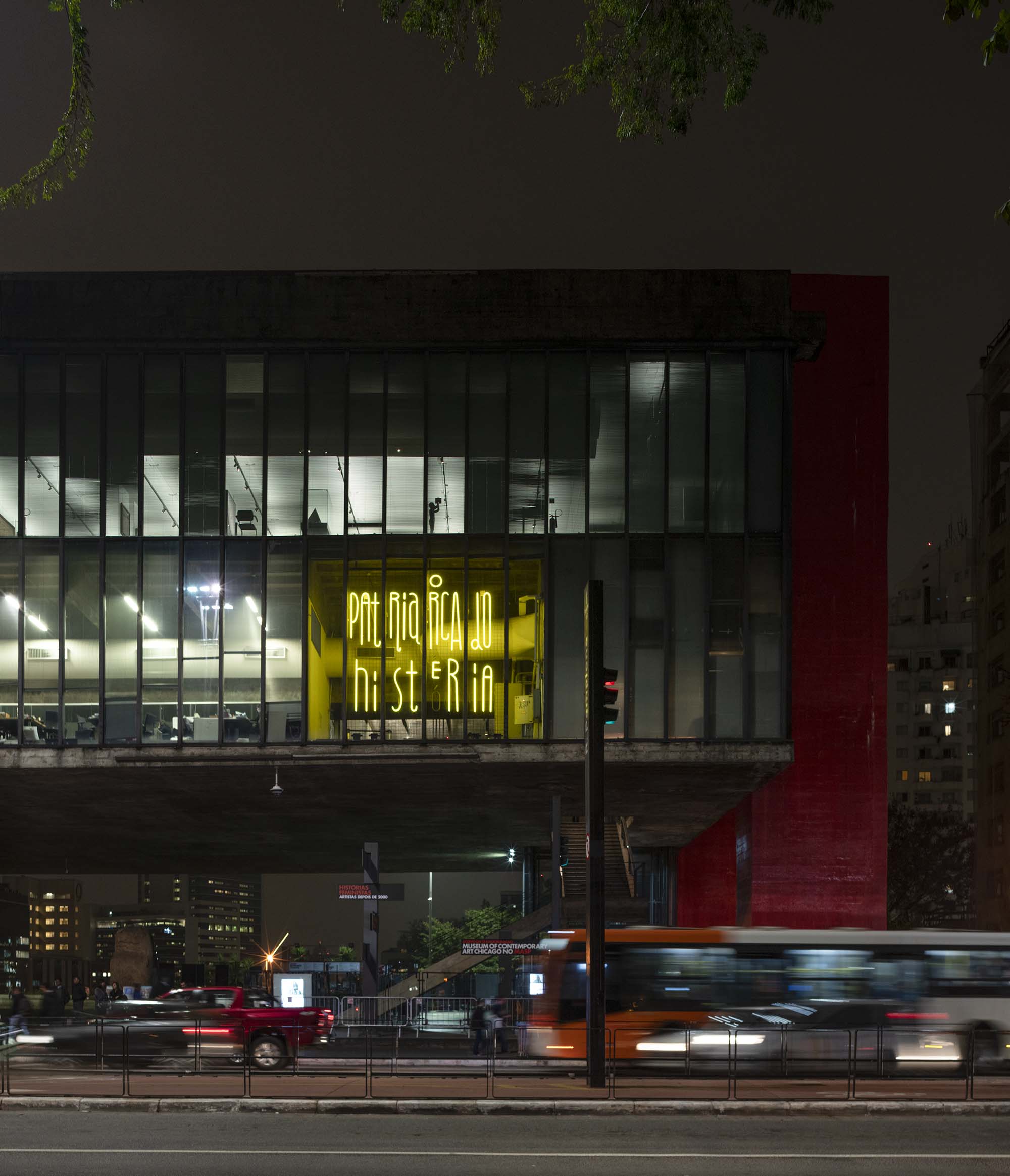Yael Bartana
Patriarchy is Histor, 2019
Author:
Yael BartanaBio:
Kfar Yehezkel, Israel, 1970Title:
Patriarchy is HistorDate:
2019Medium:
luzes de neon, fios elétricos e transformadorDimensions:
389 x 401 cmCredit line:
Doação das artistas no contexto da exposição Histórias das mulheres, histórias feministas, 2019-21Object type:
InstalaçãoInventory number:
MASP.10985Photography credits:
Yael Bartana
Yael Bartana’s work brings hope to a world that entrusts politics only to men, inviting us to radicalize our imagination—political, but not only—by instigating us to imagine other possible worlds. Bartana questions official narratives with alternative, fictional, or “counterfactual” histories: how would the world be different “if” something were different. In Inferno [Hell] (2014), created in São Paulo, the artist realized what she calls a “historical pre-enactment,” during which she filmed a possible destruction of a replica of Solomon’s Temple, located at avenida Celso Garcia. In the work, she envisions a cult of the temple’s ruins and the building of a wailing wall in São Paulo. With this work, Bartana criticizes the political project of the Brazilian Neo- Pentecostal Church, Igreja Universal do Reino de Deus, and its destructive megalomania. Since 2014, her work has been grounded in feminist politics, culminating in the play What If Women Ruled the World, which unfolded into other works, such as the one displayed in this exhibition. On stage, the artist brought together activists and actresses to discuss responses to scenarios—fictional and real—of world crises. For this new work, Bartana gathered a group of Brazilian activists engaged in different issues. With the support of the Goethe-Institut, they met at the Casa do Povo cultural center located in the Bom Retiro neighborhood, and, considering notions of power beyond its existing, oppressive forms, formed their conversation around the initial question, “What if women ruled the world?” The neon installation on MASP’s façade bearing the phrase O patriarcado é história [Patriarchy is History] resulted from this meeting. The neon installation at MASP dialogues with the work Assim elas comemoram a vitória [Thus They Celebrate Victory] (2016), installed at the Casa do Povo, in which Bartana modified the gender of a phrase from a document found in the cultural center’s archives. The neon work at MASP points to a future that still needs to be imagined. Invoking the urgent discontinuity with patriarchy as a system of oppression and power, the artist suggests the possibility that other histories, ways of life, and systems may be established.
— Benjamin Seroussi, master in sociology, École Normale Supérieure (ENS) and École des Hautes Études en Sciences Sociales (Ehess), and Isabella Rjeille, assistant curator, MASP, 2019



